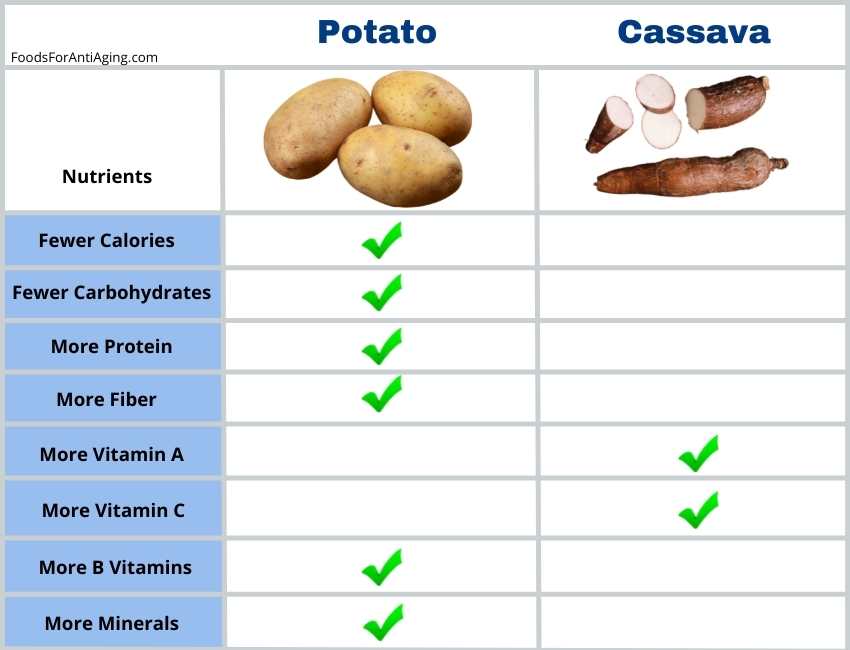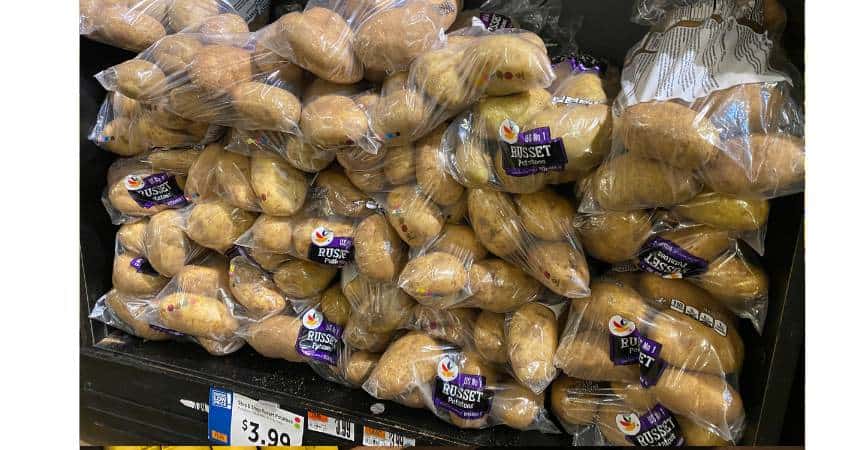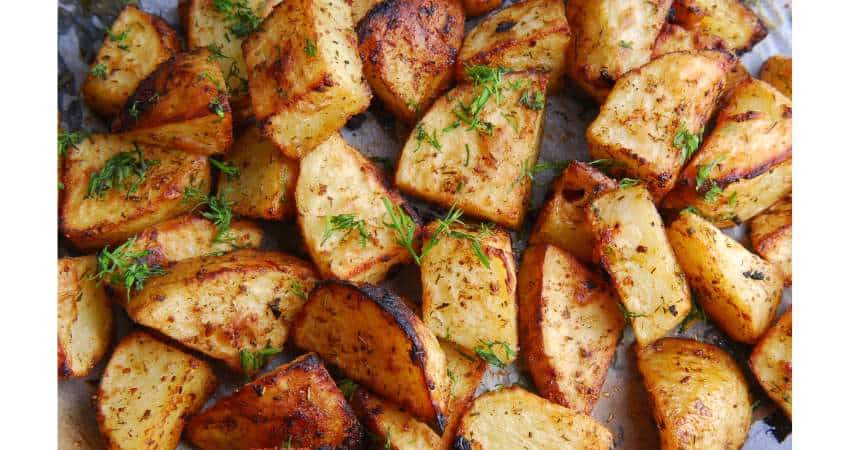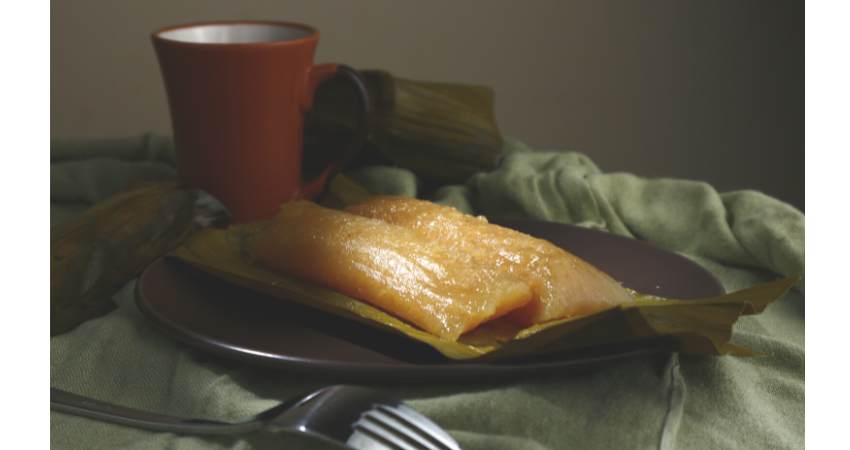Cassava vs. Potato: Which is Better? Let’s Compare
During my health coaching sessions many people ask me about cassava and potato. They share many similarities and are healthy. For this reason many people wonder about their differences or if they’re the same. Let’s answer, is cassava the same as potato?
Cassava and potato are different species from different families. Cassava, also know as yuca, has a thicker, harder brown skin compared to the thinner skin of the potato. Cassava’s shape tapers toward the end while potatoes are more tube shaped or round. Cassava has a woody vascular core which potatoes don’t have.
This article will include a side-by-side comparison of their nutrients. In addition, I’ll examine their textures, tastes, costs, glycemic index and whether one can substitute for the other. We’ll also take a look at their health benefits.
In addition to coaching clients about them, I’ve purchased, researched and consumed both prior to, during and sometimes after writing this article.
The Differences
Potatoes are known to much of the world, having been brought to Europe by Spanish sailors in the 16th century. Like cassava, it is native to South America and has many variants with a wide range of flavors and nutritional profiles.
Cassava
- Much starchier.
- Come in sweet and bitter variants.
- Has a nuttier and sweeter taste.
- Also known as yuca, manioc, or Brazilian arrowroot.
- Raw cassava can be poisonous.
- Contain more calories.
- High in resistant starch.
- Contain many antinutrients like saponins and tannins.
Potato
- Less starch.
- Has a more muted and earthy flavor.
- Used in many countries around the world.
- Has fewer calories and starch.
- Contain less resistant starch.
- Has a slightly different nutritional profile.
- Fourth largest food crop in the world, after corn, wheat and rice.
- Excellent for frying, baking, mashing, fries or making into chips.
As you can see, there are many essential differences between the two vegetables. Even though their flavor and nutrition are different, they can often be used in many of the same or similar dishes.
What Is Cassava?
Cassava is a nutty and starchy root vegetable native to South America. It is a major staple for many developing countries because it has a high caloric value. It is typically prepared by boiling, but it can also be grated or made into flour.
One of the most popular uses is tapioca. The starchy content makes it quit gluey once processed into flour. This is useful for creating things like tapioca balls for bubble tea.
Nutrition Facts
They both have similar nutritional profiles, but there are some key differences between the two.
The following table is a side-by-side comparison of the nutrients:
| Potato Raw (100 g) | Cassava Raw (100 g) | |
| Calories | 69 | 160 |
| Protein | 1.68 g | 1.36 g |
| Carbohydrates | 15.7 g | 38.1 g |
| Fiber | 2.4 g | 1.8 g |
| Fat | 0.10 g | 0.28 g |
| Sugar | 1.15 g | 1.70 g |
| Vitamin A | 8 IU | 13 IU |
| Beta-carotene | 5 mcg | 8 mcg |
| Vitamin C | 9.1 mg | 20.6 mg |
| Vitamin B6 | 0.20 mg | 0.08 mg |
| Vitamin B9 (Folate) | 18 mcg | 27 mcg |
| Vitamin B1 (Thiamin) | 0.07 mg | 0.08 mg |
| Vitamin B2 (Riboflavin) | 0.03 mg | 0.04 mg |
| Vitamin B3 (Niacin) | 1.07 mg | 0.85 mg |
| Vitamin B5 (Pantothenic Acid) | 0.28 mg | 0.10 mg |
| Magnesium | 21 mg | 21 mg |
| Phosphorous | 62 mg | 27 mg |
| Potassium | 407 mg | 271 mg |
| Iron | 0.52 mg | 0.27 mg |
| Copper | 0.11 mg | 0.10 mg |
| Calcium | 9 mg | 16 mg |
| Zinc | 0.29 mg | 0.34 mg |
Which is Healthier?
Both of them contain the same types of nutrients. At first glance it’s difficult to determine which one contains a higher percentage than the other. Therefore, let’s examine them closer and determine which one is healthier.
Potato is healthier than cassava due to its fewer calories, carbohydrates, fat, sugar and higher percentage of fiber, protein and minerals. It provides more B6, niacin, B5, phosphorus, potassium, iron and copper.
Cassava is healthy also and contains many nutrients. It provides a higher percentage of vitamin A, beta carotene, vitamin C, folate, thiamin, riboflavin, calcium and zinc.
If you suffer from diabetes or are concerned about your blood sugar in general, cassava might be the better option for you. Read more about blood sugar spikes in the glycemic section of this article down further.
One thing worth mentioning is Cassava contains a number of antinutrients. These are substances hindering the body’s ability to absorb nutrition.
Specifically, cassava contains:
- Saponins
- Phytate
- Tannins
You may have you heard cassava starch contains a kind of natural toxin.
Studies show raw Cassava actually contains cyanogenic glycosides. This means certain chemicals in cassava can be converted into cyanide by the body. This can result in chronic cyanide poisoning if the root is not prepared correctly4.
Making sure to cook the cassava thoroughly will destroy the dangerous chemicals and make it safe for consumption.
When looking at each amino acid profile, both vegetables contain similar essential amino acids.
Which to Choose?
Choosing between the two may determine your particular goals.
Weight Loss
One of the most common goals may be weight loss. If you’re looking to shed some extra inches off the waistline, you’ll want to know if one is better for weight loss.
Cassava is not better for weight loss than potatoes due to its higher percentage of calories, carbohydrates and sugar. It contains 132% more calories.
So generally, both vegetables contain a number of varied nutrients good as part of a balanced diet. The main thing about root vegetables is fulfilling a large caloric requirement without adding many fats or sugar to your diet.
This is one of the reasons they are both popular staples in many developing countries.
Low Carb Diets and Carbohydrates
If you’re on a low carb or Keto diet, tracking grams of carbs is very important. Every gram adds up quickly. For this reason, you’ll want to know which of the two vegetables is lower in carbs.
Potato is the better than cassava because they contain less carbs per serving. The raw vegetable contains over 50% fewer carbohydrates to start.

Taste and Texture
Many times people choose one food over the other because of its taste. Since there are some similarities between the two, many people wonder if they taste the same.
Cassava doesn’t taste like potato but they have a similar texture. Cassava is nutty and slightly sweet and bitter at the same time. Potatoes taste a little earthier. They both have a similar creamy, dense and soft texture.
When potatoes are baked or fried, they get a golden, crispy crust with a pillowy inside. They get very soft when boiled, so people love turning them into silky smooth mashed.
The flavor is nothing extreme. It’s somewhat earthy and slightly sweet from the naturally occurring sugars.
Cassava is slightly earthy and sweet. It has a nutty flavor with a creamy, dense texture.
I wanted to get the opinion of real people like you by conducting some original research. Therefore, I reached out to some clients, members of food groups and readers. I asked, which one tastes better?
- 59% said they preferred the taste of potato.
- 29% said they preferred the taste of cassava.
- 12% said they had no preference.
I also participated in my own blind taste test. I prepared both foods masked with the same ingredients. 75% of the people present chose potato.
Find out how bread compared for health and nutrients in my article.
Substitutions
There are times when only one of the two is available in the supermarket or you only have one at home. In these situations you’ll wonder if you can use one for the other.
Potato and cassava can substitute for each other due to their similar textures and cooking methods for recipes. Although the taste will slightly differ, they can be used in the same recipes requiring boiling, baking, frying, soup, stews or mashing. Both can substitute for each other using the same weight called for in a recipe.
The following can substitute for cassava:
- Sweet potato
- Regular potato
- Parsnip
The following can substitute for potato:
- Sweet potato
- Taro
- Red potatoes
- Any type of white type
- Cassava
Find out how turnips compared in my article here.

Costs
With the rising prices of just about everything, the cost of food certainly matters to most. The price may sway your decision about which one to use. Therefore, let’s take a close look at which one costs more.
Cassava cost more than potatoes. The average price for potatoes is $0.99 per pound, and the average price for cassava is $2.43 per pound.
Depending on where you live, it may be easier to find one over the other. Near me, both are readily available and affordable to purchase in any supermarket.
To conduct more research, I conducted a search of some local supermarkets and compared the prices of both.
I first visited the Shoprite supermarket and found the following prices:
- Potato
- $0.99 per pound
I then checked Walmart:
- Cassava
- $2.37 per pound
- Potato
- $0.99 per pound
If you’re interested about how sweet potatoes held up against pumpkin for health and nutrition, check out my comparison article.
How To Store
Whichever you choose or have on hand, proper storage is crucial. How you store vegetables can affect how long they last before going bad and how they taste when cooked.
As a Certified Health Coach, I conduct pantry makeovers which sometimes includes food storage. This is a topic I discuss.
Therefore, let’s examine how to store each one.
Store potatoes in a dark, cool place away from heat and do not store them in the refrigerator. A humid basement or root cellar is the best area. They should be kept in a burlap bag or ventilated container and stored between 40°F and 60°F.
Storing them in a refrigerator can make the center hard and change the cell structure. This can diminish the flavor. If you don’t have a cool basement, store them in a ventilated place, away from heat and light.
Unpeeled cassava should be stored in a cool, dry place up to one week. A pantry or somewhere out of the sun or away from a heat source is ideal. Once peeled or cut it should be placed into a bowl, covered with water and sealed. Keep the peeled vegetable in the refrigerator up to two weeks.
How to know if it is bad? If the cassava has soft brown spots or has an unusual odor, it is bad and should be discarded. It is bad if the flesh has black lines, spots or any discoloration.
To find out how taro compared check out my article here.
Glycemic Index
Knowing the glycemic index of food is important especially if blood sugar levels are a concern. Avoiding blood sugar spikes is an important part of consuming healthy food.
The Glycemic Index (GI) is a scale measuring how fast a particular food raises the blood sugar in the blood5. Blood sugar spikes can lead to health complications with the heart, nerves, kidneys and eyes6.
Foods on the GI scale are categorized as:
- Low-GI foods: 55 or under
- Medium-GI foods: 56-69
- High-GI foods: 70 or over
How blood sugars levels are affected:
- Foods with a glycemic index 70 or more cause a quicker spike in blood sugar levels.
- Foods with a glycemic index 56 to 69 cause a moderate spike in blood sugar levels.
- Foods with a glycemic index 55 or less cause a slow spike in blood sugar levels.
Now we know what the glycemic index is, and how it affects blood sugar, let’s answer, which one has higher GI?
The cassava GI index of 46 is lower than potato. It has a GI of 46, a boiled russet has a GI of 54 and a boiled Yukon Gold has a GI of 58.
Find out if rice has more nutrients when compared to spuds in my article here.

Health Benefits
As noted in the nutrient section of this article earlier, the nutrients provided by both vegetables have many health benefits. Let’s examine how each one of these nutrients benefit health issues.
Vitamins
Cassava provides 20.6 mg of vitamin C. The body can’t make it on its own, so it must come from the foods ate every day. It has been shown in studies to help with the growth and repair of tissues throughout the body7.
It helps heal and repair wounds, maintain the immune system, healthy bones, skin and cartilage. Vitamin C acts as an antioxidant and fights free radicals which damage the cells. Helping to prevent cell damage can help with the following:
- Certain diseases like cancer.
- Heart disease.
- Promote healthy aging.
Of the six B vitamins listed below, potatoes provides a higher percentage of four of them. The B vitamins provided include the following:
- B1 (thiamin)
- B2 (riboflavin)
- B3 (niacin)
- B5
- B6
- B9 (folate)
B vitamins help support the following:
- Red blood cells.
- Brain function.
- Nerve function.
- Cardiovascular disease.
- Digestion.
- Energy levels.
A lack of B vitamins has been associated with oxidative stress and neural inflammation. In a study released in 2018 32 healthy adults were given B vitamin supplementation for six months. The results indicated preliminary evidence B vitamin supplementation reduced oxidative stress and inflammation8.
Fiber
Potato provides 2.4 grams per 100 gram serving. They both contain soluble and insoluble fiber. Fiber remains in the digestive tract and provides gut related health benefits. Fiber rich diets have been linked to regular bowel movements and a lower risk of colon cancer9.

Calcium
Cassava provides 16 grams per 100 grams. Calcium is important for the heart and blood pressure. Harvard Health reports calcium helps maintain blood pressure by helping in the controlling of the relaxing and tightening of blood vessels10.
Calcium also helps the following:
- Build and maintain strong bones.
- Helps muscles function properly.
- Helps nerve function.
Magnesium
They both provide 21 mg of magnesium per 100 grams. Magnesium helps keep blood pressure levels stable and balanced. Recent scientific research examined previous studies and concluded magnesium supplementation decreased systolic and diastolic blood pressure11.
Magnesium helps control the following:
- Nerve function
- Muscle
- Insomnia
- Blood pressure
- Blood sugar
One reason many people supplement with magnesium in the evening is because it helps calm the whole body including blood vessels.
In the heart and muscles, magnesium competes with calcium to help the muscles relax after contracting. When the body is low in magnesium, calcium can over stimulate the heart muscle’s cells causing a rapid or irregular heartbeat ((National Institutes of Health: Magnesium)).
Potassium
Potato provides 407 mg per 100 grams raw. Potassium helps the body get rid of excess sodium reducing fluid build-up. These help keep systolic and diastolic blood pressure lower ((American Heart Association: How Potassium Can Help Control High Blood Pressure)).
According to Harvard Health, a number of studies have shown a connection between low potassium levels and high blood pressure12. The more potassium, the more sodium your body will lose.
Consuming too much sodium or not enough potassium throws off the delicate balance the kidneys need to remove the excess water13.
The following video teaches you how to make fried cassava fries.
If you have any questions about this article don’t hesitate to email us. You can find an email on our contact page.
FAQ
Are cassava chips healthier than potato?
Potato chips are healthier than cassava chips if prepared the same way. Potato chips provide a higher percentage of fiber, protein and minerals. They have fewer calories and sugar.
Read Next – More Food Articles!
Red Potatoes vs Yukon Gold Potatoes: What’s The Difference?
Sweet Potato vs. Butternut Squash: A Comparison
Are Sweet Potatoes Healthier Than Regular Potatoes?
Yukon Gold Potato vs Russet Potato: What’s The Difference?
Plantain vs Potato – Which is Better? Let’s Compare
- USDA: Cassava, raw [↩]
- Nutrition Value: Cassava, raw [↩]
- USDA: Potatoes, white, flesh and skin, raw [↩]
- National Center for Biotechnology Information: Chronic poisoning by hydrogen cyanide in cassava and its prevention in Africa and Latin America [↩]
- Harvard Health Publishing: Glycemic index for 60+ foods [↩]
- National Institute of Diabetes and Digestive and Kidney Diseases: Know Your Blood Sugar Numbers: Use Them to Manage Your Diabetes [↩]
- National Center for Biotechnology Information: Vitamin C and Immune Function [↩]
- National Center for Biotechnology Information: The Effect of a High-Dose Vitamin B Multivitamin Supplement on the Relationship between Brain Metabolism and Blood Biomarkers of Oxidative Stress: A Randomized Control Trial [↩]
- National Center for Biotechnology Information: Mechanisms linking dietary fiber, gut microbiota and colon cancer prevention [↩]
- Harvard Health: Key minerals to help control blood pressure [↩]
- National Center for Biotechnology Information: Effect of magnesium supplementation on blood pressure: a meta-analysis [↩]
- Harvard Health: Potassium lowers blood pressure [↩]
- National Center for Biotechnology Information: The Effect of the Sodium to Potassium Ratio on Hypertension Prevalence: A Propensity Score Matching Approach [↩]
